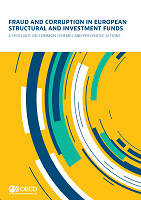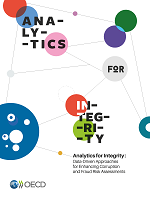Anti-corruption et intégrité dans le secteur public
Risk management to safeguard integrity
|
Integrity risk management aids decision-making and ultimately helps to ensure the achievement of integrity objectives. Risk management helps governments to strike a balance between preventive measures and enforcement. Effective risk management aligns with government’s objectives and aids managerial decision-making. Risk assessments help governments to identify and understand the root causes of risks, how to mitigate them and the players involved. |
OECD AUDITORS ALLIANCE
|
Risk management, coupled with a robust internal control system and effective audit, is fundamental for safeguarding taxpayers’ money, ensuring accountable governance and integrity, and preserving public trust: |
|
INTERNAL CONTROL Internal control is about ensuring that operations are efficient, effective and in line with laws and policy objectives.
|
EXTERNAL AUDIT External audit functions, or Supreme Audit Institutions, hold governments accountable for how they spend public money, and provide insights and foresights about value-for-money and systemic risks. |
PUBLIC INTEGRITY Public integrity refers to the consistent alignment of, and adherence to, shared ethical values, principles and norms for upholding and prioritising the public interest over private interests in the public sector. |
For more information, contact the Public Sector Integrity Divison: GOVintegrity@oecd.org
Documents connexes
- Public Sector Internal Control, Risk Management and Audit

